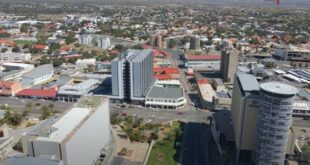The Mo Ibrahim Foundation has released its annual assessment of the quality of governance in African countries. The 2018 Ibrahim Index names Mauritius as the best-governed and Somalia the worst-governed among the 54 countries in the continent.
The Ibrahim Index of African Governance (IIAG) ), which was launched in 2007, is generated by measuring Safety & Rule of Law, Participation & Human Rights, Sustainable Economic Opportunity and Human Development as indicators of good governance. All these have sub-categories that add up to the 100 IIAG indicators used to determine the quality of governance in a country.
At 79.5 point out of 100 points available, Mauritius leads governance on the continent, while Somalia, with 13.6 points is the worst-governed state, according to the 2018 IIAG, which was released on 29 October.
According to the Index, top ten best-governed countries in Africa are:
Mauritius, Seychelles, Cabo Verde, Namibia, Botswana, Ghana, South Africa, Rwanda, Tunisia and Senegal.
Kenya at No 11 also got a good rating while Nigeria at 33 performed poorly.
According to the Foundation, financed by Sudanese mobile phone magnate Mo Ibrahim, governance is “the provision of the political, social and economic public goods and services that every citizen has the right to expect from their state, and that a state has the responsibility to deliver to its citizens.”
The report, which ranks countries according to their development over the past five years (2013-2017), shows that Africa scored an average of 49.9 in overall governance, a one-point difference to the 2008 score, indicating a marginal improvement.
Thirty-four countries showed an improvement, with Cote d’Ivoire as the most improved; 18 countries deteriorated, with Libya posting the largest deterioration.
While the 2018 IIAG highlights that governance has improved in Africa over the past decade, it’s however “lagging behind the needs and expectations of a growing population, composed mainly of young people”, said the Mo Ibrahim Foundation.
Specifically, it said that “despite strong GDP growth over the last ten years, Africa has failed to generate economic opportunities for its booming youth population.”
“Since 2008 the African average score for Sustainable Economic Opportunity has increased by 0.1 point, or 0.2%, despite a continental increase in GDP of nearly 40% over the same period,” the Foundation said.
“The almost stagnant Sustainable Economic Opportunity trend strikes a concerning contrast with demographic growth and youth expectations. Africa’s population has increased by 26.0% over the last ten years and 60% of the continent’s 1.25 billion people are now under the age of 25.”
“The evidence is clear – young citizens of Africa need hope, prospects and opportunities. Its leaders need to speed up job creation to sustain progress and stave off deterioration. The time to act is now,” Mo Ibrahim, Chair of the Mo Ibrahim Foundation, said.
Femi Awoniyi
Click here for the full 2018 Ibrahim Index of African Governance report
 THE AFRICAN COURIER. Reporting Africa and its Diaspora! The African Courier is an international magazine published in Germany to report on Africa and the Diaspora African experience. The first issue of the bimonthly magazine appeared on the newsstands on 15 February 1998. The African Courier is a communication forum for European-African political, economic and cultural exchanges, and a voice for Africa in Europe.
THE AFRICAN COURIER. Reporting Africa and its Diaspora! The African Courier is an international magazine published in Germany to report on Africa and the Diaspora African experience. The first issue of the bimonthly magazine appeared on the newsstands on 15 February 1998. The African Courier is a communication forum for European-African political, economic and cultural exchanges, and a voice for Africa in Europe.

































